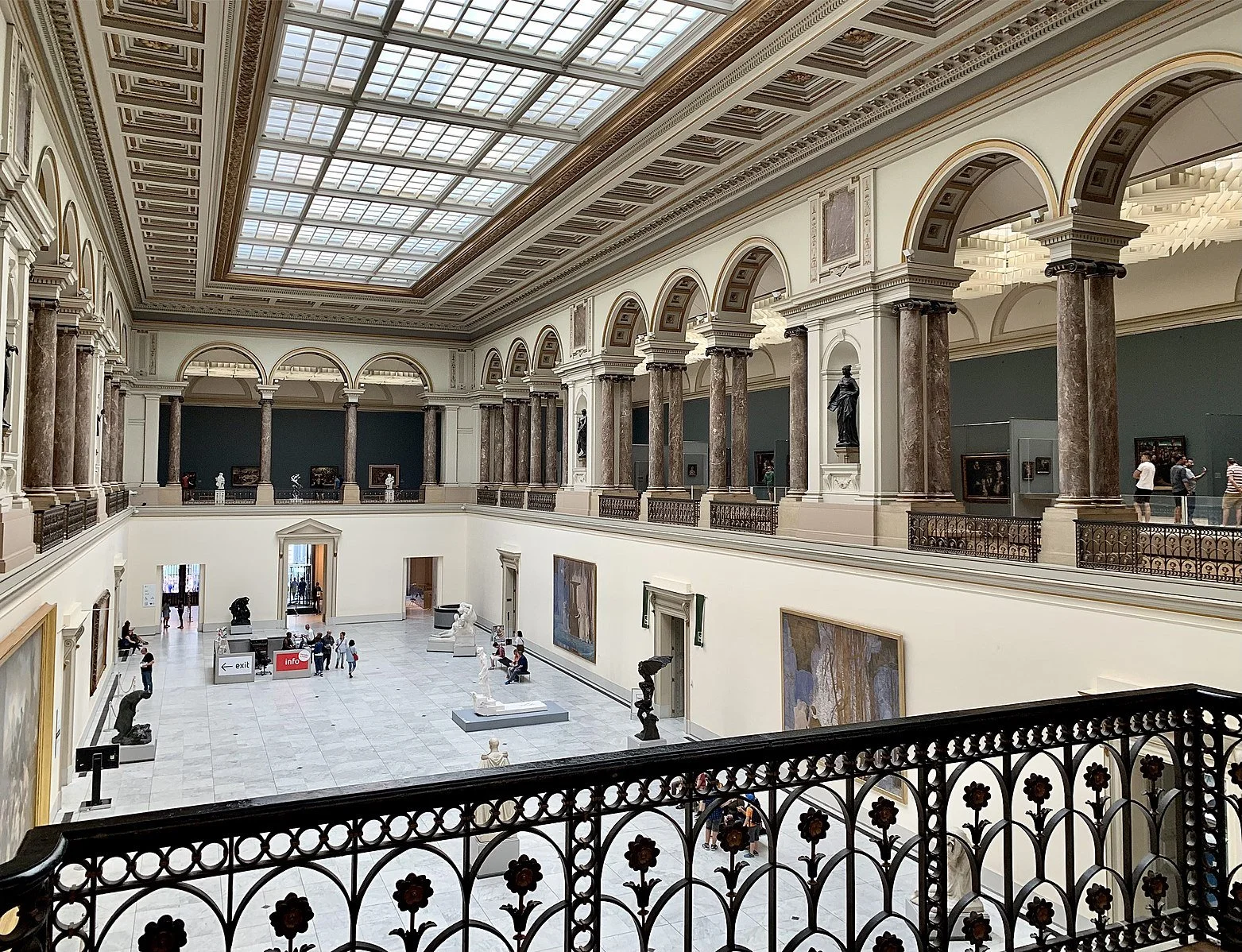Providing Pis of Mind: Brussels’ New Prescribed Museum Visits
Museums have been making front page news recently, following two environmental activists’ attempt to vandalise Van Gogh’s oil painting, The Sunflowers (1888), with a can of Heinz tomato soup at the National Gallery in London. However, just across the water, in the de facto capital of the European Union, museums have taken centre stage for other revolutionary reasons.
As of 12th September 2022, psychiatrists in Belgium's capital have been permitted to prescribe museum visits to patients as a way of managing mental illness, specifically in cases of stress, depression, anxiety, psychosis, bipolar disorder, and burnout. The initiative was launched by Brussels’ Alderwoman of Culture and Tourism, Delphine Houba, as part of a six-month trial program to evaluate the impact of cultural institutions on mental health and well-being.
A patient can be prescribed up to five museum visits per year, choosing between different cultural venues in Brussels such as the City Museum, the Fashion and Lace Museum, and even the Museum of Sewers—a museum which follows the city's 350km network of underground canals. The CENTRALE Contemporary Art Centre, situated in a former power station, and the famous GardeRobe MannekenPis, a museum displaying the various outfits of the city’s famous statue, Manneken Pis, are also partaking in the new initiative.
The project was inspired by the “art prescription” program implemented in Quebec in 2018, which allows doctors to prescribe fifty museum prescriptions a year for patients to visit the Montreal Museum of Fine Arts. Ticket costs are covered by the government, making the program accessible to anyone who needs it. Similarly, in Belgium, the City of Brussels will pay for the entrance tickets for the patient and up to three accompanying persons.
Whilst these innovative programs are not a substitute for medication or therapy, they are a supplementary tool used to demonstrate the powerful role of culture in supporting and boosting mental health. Museum visits have already been shown to have numerous benefits, such as releasing dopamine, distracting from chronic pain, and even increasing life expectancy.
These cultural excursions support mental health by providing respite and encouraging patients to socialise and discover something new. Museums give the visitor an opportunity to engage with history and learn more about local and global cultures and traditions. Even the simple act of emotionally connecting with a piece of art and appreciating its beauty in a calming atmosphere can have a restorative effect. Museums also facilitate social interaction through enthusiastic tour guides and gallery assistants, lecture series and film groups for young and old alike. In this way, museums become places of community, meaning, and celebration of life. This is particularly significant in a post-lockdown era, as highlighted by Houba in an interview with The Observer: "Now's the time to do this [...] The coronavirus reminded us that culture is essential for mental health."
Given that Belgium has one of the highest suicide rates in Europe and an estimated 16% of the population with a form of depressive disorder, prescribed museum visits could be a real step in the right direction. Although not a cure, they are an effective way of de-stigmatising and rebuilding mental health, as well as supporting culture. With mental illness cases increasing around the globe, particularly amongst young people, Belgium has shown that there is no use in waffling around. If the project is proven to be a success after its trial period, Brussels could be Europe's pioneer for improved mental health care.
Image courtesy of Neoclassicism Enthusiast via Wikimedia, ©2019, some rights reserved.
The views and opinions expressed in this article are those of the author and do not necessarily reflect those of the wider St Andrews Foreign Affairs Review team.



